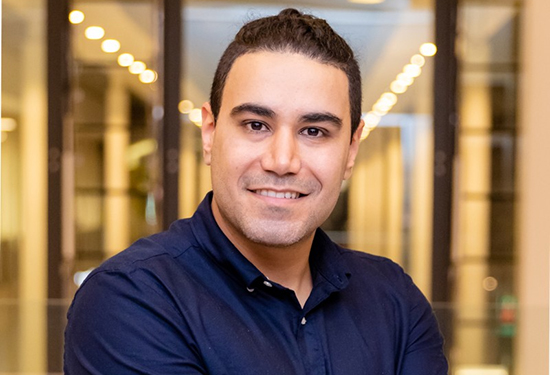
“At certain times during the day, our energy grid produces a significant amount of solar energy that we can’t immediately use all of, so we need better ways of managing and storing this vital resource,” says Dr Mehrdad Aghamohamadi (PhD ‘22). “My proposed model can store this energy while unlocking even more capacity for renewables in Australia.”
Dr Aghamohamadi’s PhD project, undertaken as a collaboration between Flinders University and the CSIRO, focused on efficient integration of electric vehicles into the electricity distribution system – a study that shows energy stakeholders can achieve strong benefits and revenue from the energy sector with a lower cost compared to conventional battery storage sizing methods.
The timeliness of his innovation is important, making a great contribution to battery developments and renewable energy storage that can accelerate Australia’s 2050 energy transition targets, resulting in millions of dollars saved by consumers and our energy industry.
Through his studies in electrical engineering, Dr Aghamohamadi has been intrigued that batteries can change power consumption patterns in cities and remote communities. Coming from Iran, in an era when the government showed scant interest in solar power and storage, his interest in battery storage possibility was piqued after arriving in Adelaide four years ago to do his PhD, and noticing the vast amount of rooftop solar generation during daylight hours.
Encouraged by government enthusiasm for pursuing and advancing research in efficient storage of renewable energy in off-peak times, he came at the problems from a fresh perspective – and arrived at innovative solutions that electric vehicles could be energy storage vessels, not just energy-reliant machines. “I see that electric vehicles are just batteries on wheels, so why not use that capacity to leverage peak and off-peak demand for electricity,” says Dr Aghamohamadi.
For his achievements, he has been awarded the Chris Marlin Postgraduate Student Publication Prize in Computer Science, Engineering and Mathematics two years in a row, the best HDR publication of the year, SA fresh scientist awarded by Fresh Science in 2021 and an Emerging Research Leader award at Flinders University in 2022. He has also been selected as a finalist for the SA Science Excellence and Innovation award (winner to be announced in late 2023).
Beyond recognition for the technical quality of his work, Dr Aghamohamadi’s ability to communicate and demonstrate his novel ideas is crucial. He notes that electric vehicle uptake in Australia is still very slow compared to such places as California, USA – but he hopes his model will be held up by the local energy industry, entice more people to purchase electric vehicles and use their battery storage capacity to the fullest. “Hopefully, my model can influence the decisions of people who are considering whether to purchase an electric vehicle as their next car,” he says.
He is now working at the Australian Energy Market Operator, applying his modelling and optimisation skills to explore more efficient interaction between renewable power sources and solar batteries, gas plants, coal-fired generators and all aspects of the power generation network. “I’m sitting in the middle of the whole system, so it’ll be exciting to see where progress leads us.”
Dr Mehrdad Aghamohamadi was awarded a 2023 Early Career Alumni Award for his significant research in renewable and sustainable energy development models that accelerate Australia’s net zero emission target.

